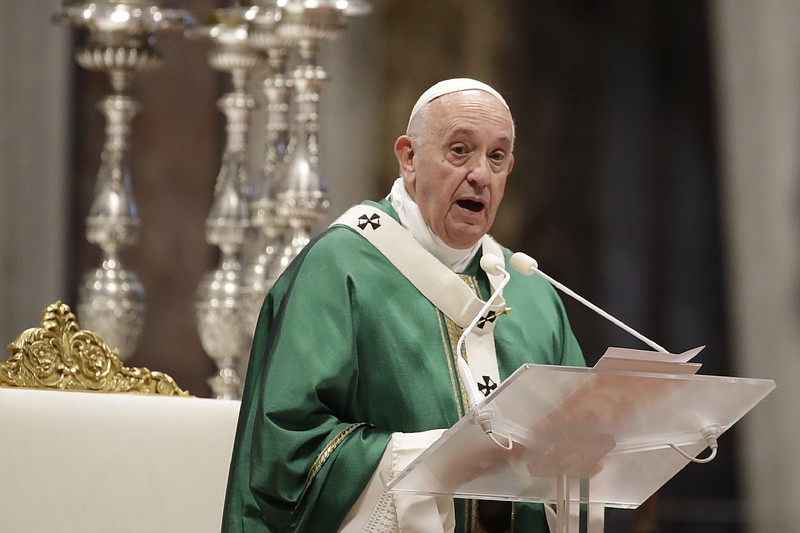Editor's note: This article is part of "Religion: Got questions?," a series answering your biggest religious questions. Each week, we will answer one submitted faith question. To send a submission visit timesfreepress.com/religionquestions or email wmassey@timesfreepress.com.
Question: Where is it in the Catholic religion that prevents priests from marriage?
Last month, Catholic bishops from the Amazon met with Pope Francis at the Vatican to push for a series of reforms to improve the Catholic Church in South America. Among those approved requests was allowing married men in the region to become ordained priests.
The request is in response to a priest shortage in the area and ensuring the faithful can continue to receive communion from an ordained priest.
It also revived an ongoing conversation over the role and value of requiring priests to be celibate.
Catholics in religious life take the vows of chastity, poverty and obedience. According to church's own laws, these sacrifices have roots in the Bible's New Testament and church rules, otherwise called canon law. The rule regarding celibacy states ordained priests must be celibate because it "is a sign of this new life to the service of which the Church's minister is consecrated; accepted with a joyous heart celibacy radiantly proclaims the Reign of God."
Two passages in the New Testament specifically address marriage and the value of celibacy. In Matthew 19:12, the author emphasizes the value of people who "choose to live like eunuchs for the sake of the kingdom of heaven. The one who can accept this should accept it." The Catholic Church's catechism quotes this passage in its explanation of why ordained priests must be celibate.
In 1 Corinthians 7:32-35, Paul writes that women and men who are not married can better focus their lives on the concerns of God. Similar references appear in the Old Testament, as well.
However, these rules are extrapolations from Christianity's holy book. The passages do not say that priests or church leaders must be celibate. That was a decision made by the Catholic Church and reserved for only specific people in religious life. For example, married men can become deacons in the Catholic Church.
Celibacy is also a somewhat modern practice. St. Peter, regarded as the first pope, was married. For the first thousand years from the start of Christianity, church leaders were married and had families, especially in rural areas. It was not until the 12th century that the church officially banned marriage for priests during its First and Second Lateran councils.
The church has held to this rule ever since, despite criticism of the practice. In 1992, Pope John Paul II re-affirmed the importance of celibacy, writing that the practice "reminds priests that celibacy is a priceless gift of God for the Church and has a prophetic value for the world today."
From the reporter
I became a journalist to help people see people as people. But highlighting the human side of every policy decision, and how it is affecting your community, takes time as well as support from readers. If you believe in telling the stories of people in your community, please subscribe to the Times Free Press today. Contact me at wmassey@timesfreepress.com or 423-757-6249. Find me on Twitter at @News4Mass.
